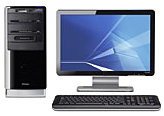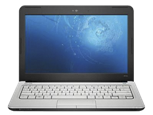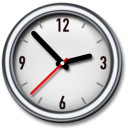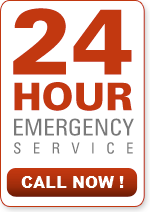|
|

|

Desktop Computers • Servers • NAS
|
TheComputerWash.com
|
Computer Repair & Virus Removal Services
|

|
118 S 30th Street, Newark, OH 43055
|

|
(740) 616 - 4470
|
|
|
|
ANY COMPUTER
|
•
|
ANY REPAIR
|
•
|
24 HOURS
IF PARTS ARE IN STOCK
|
|
|
|

Laptops • Mobile Workstations
|

|
|
|
|
|
|

|
How To • Prevent Virus Infections On Your Computer
|
|
|
|
|
Internet Protection Software is like buying car insurance.
Just how good do you think FREE car insurance would be? Just exactly the same as FREE Internet Protection Software. NOT THAT GOOD! Although, it is far better than having nothing. It is not going to protect you 100%.
Think of the front door to your house. What if the door was only 75% there? Bad guys could craw right through the 25% open part. What good would that be? Even one bad guy (virus) that gets through is bad! I have fixed many frozen computers that had only one bad guy on them.
I want to try to explain to you, what and how to buy a Internet Protection Software Package. For the sake of this example only, lets say that Viruses are Red, Trojan Viruses are Purple, Spyware Viruses are Yellow, Malware Viruses are Orange, Tracking Cookies are Green, Rootkits are Blue, and Adware is Brown.
Ok, if you install (as the gate keeper) Anti-Virus Software,
then it will keep out all of the Red and Purple guys. Since all of the Other Color Bad Guys are NOT on the list, the gate is wide open to them and they are invited right in! Now your computer is hosting a huge party filling up with Spyware Bad Guys because the Anti-Virus Keep-Them-Out List does not have there names on it.
Believe it or not, that's how it works. To keep out ALL of the Bad Guys, you need a Internet Protection Software Package. It should include a Firewall, Anti-Virus Software, Anti-Spyware Software, Anti-Malware Software, block Adware and prevent Rootkits.
We recommend using Norton Internet Security 1-Year. According to the Top-10 surveys, It is the best thing a consumer can buy. It's front door is 100% closed.
It retails in stores for $79.99. We sell it, Installed, Activated, all Settings Set, and a run a Full System Scan, for $64.00 plus tax.
|
|
|
|
|
LES
EDWARDS
#1
COMPUTER
SAFETY
TIP
|

|
Wait 5 minutes after you start your computer before you begin using it for anything. Do not even touch it! Go make a pot of coffee.
Why? Your computer is not a light bulb. When you start a computer, a few thousand processes all start, basically, at once. Some take 2 seconds to run and some take up to 3 minutes. Your security processes are a few hundred of them. If you wait 5 minutes after you start your computer (or after you enter your Log-On Password) to begin doing anything, most of the processes will be done, or set in place, and are totally out of the way. All of your security processes will have had a chance to fully load and update themselves too. Now when you go to do something, like surfing the internet, retrieving and reading your email or checking in at your favorite social site, your computer will be fully protected and much more responsive.
That's right! It will run a lot faster too!
|
|
|
|
|
|
Your computer is like a safe full of money. To prevent most of the bad guys (virus infections, malware and spyware)
from getting inside of your computer, you should do the following:
Daily  Empty your browsing history. Empty your browsing history.
Daily  Empty your temporary internet files. Empty your temporary internet files.
Daily  Empty the Recycle Bin. Empty the Recycle Bin.
Daily  Install the latest updates for your Anti-Virus software (example: Microsoft Security Essentials), and then run a quick scan. Install the latest updates for your Anti-Virus software (example: Microsoft Security Essentials), and then run a quick scan.
Weekly  Install the latest updates for your Microsoft© Windows© Operating System software . Install the latest updates for your Microsoft© Windows© Operating System software .
Weekly  Install the latest updates for Adobe© Reader© software. Install the latest updates for Adobe© Reader© software.
Weekly  Install the latest updates for Adobe© Flash© software. Install the latest updates for Adobe© Flash© software.
Weekly  Install the latest updates for Java© software. Install the latest updates for Java© software.
Monthly  Install the latest updates for Apple iTunes© software (if installed). Install the latest updates for Apple iTunes© software (if installed).
Monthly  Install the latest updates for Apple QuickTime© software (if installed). Install the latest updates for Apple QuickTime© software (if installed).
Monthly  Install the latest updates for all of your other installed software. Install the latest updates for all of your other installed software.
Monthly  Install the latest driver updates for all of your computer hardware. Install the latest driver updates for all of your computer hardware.
Monthly  Install the latest updates for your Anti-Virus software (example: Microsoft Security Essentials), and then run a full scan. Install the latest updates for your Anti-Virus software (example: Microsoft Security Essentials), and then run a full scan.
Monthly  Install the latest updates for your Anti-Spyware software (example: SUPERAntiSpyware), and then run a full scan. Install the latest updates for your Anti-Spyware software (example: SUPERAntiSpyware), and then run a full scan.
Monthly  Carefully wipe down your keyboard with a disinfectant wipe (with the computer turned off). Carefully wipe down your keyboard with a disinfectant wipe (with the computer turned off).
Yearly  Renew and Install the latest yearly subscription for Anti-Virus software. Renew and Install the latest yearly subscription for Anti-Virus software.
Yearly  Renew and Install the latest yearly subscription for Anti-Spyware software. Renew and Install the latest yearly subscription for Anti-Spyware software.
Yearly  Renew and Install the latest yearly subscription for any other annual software (if installed). Renew and Install the latest yearly subscription for any other annual software (if installed).
Yearly  Vacuum dust and dirt from the outside of the computer case (with the computer turned off). Vacuum dust and dirt from the outside of the computer case (with the computer turned off).
Do  Enable the Windows© Firewall on your computer. Enable the Windows© Firewall on your computer.
Do  Uncheck the Hide Inactive Icons box. The notification area provides very important notifications and status. You always want to see them! Uncheck the Hide Inactive Icons box. The notification area provides very important notifications and status. You always want to see them!
Do  Unhide the Taskbar on your computer. So you can always see the notification area. Unhide the Taskbar on your computer. So you can always see the notification area.
Do  Limit user privileges on your computer. Limit user privileges on your computer.
Do  Use caution when opening attachments. Use caution when opening attachments.
Do  Make sure your Anti-Virus Anti-Spyware Software protects you, if you are using a different browser other than Internet Explorer. Make sure your Anti-Virus Anti-Spyware Software protects you, if you are using a different browser other than Internet Explorer.
Do  Use caution when accepting file transfers. Use caution when accepting file transfers.
Do  Use caution when clicking on links to webpages. Use caution when clicking on links to webpages.
Do  Avoid downloading pirated software, music and videos. Avoid downloading pirated software, music and videos.
Do  Avoid installing free "tag-along" software that is included with the software that you "want" to install. Avoid installing free "tag-along" software that is included with the software that you "want" to install.
Do  Remove or disable spyware infested toolbars from your internet browser. Remove or disable spyware infested toolbars from your internet browser.
Do  Use strong passwords (8 characters or more). Use strong passwords (8 characters or more).
Do Not  Click on any links that are inside of email jokes. NEVER! Click on any links that are inside of email jokes. NEVER!
Do Not  Answer any bank emails. They do not use email. They only use the US Mail. Answer any bank emails. They do not use email. They only use the US Mail.
Do Not  Answer any government emails. They do not use email. They only use the US Mail. Answer any government emails. They do not use email. They only use the US Mail.
|
|
|
|
|
|
HOT
TIP
|

|
In the event you need to turn off your computer immediately,
press and hold down on the Power Switch for 5 seconds.
The computer will immediately turn off without saving anymore information.
Only do this in emergency situations! You will lose all unsaved data.
|
|
|
|
|
|
HOME
PAGE
TIP
|

|
You should set your home page to www.google.com.
Why? When you are having troubles with your computer, having your home page set to google makes it easy to see if you can get on the internet. With google, all you get is a blank white page with a logo picture and a search box. With most other websites, you are also loading big pictures, Flash movies, Java, PHP, 5 or 6 animated advertisements, and who knows what else. When trouble strikes, simple is better. You can always then click a favorite, or a shortcut, and then go where you need to go.
|
|
|
|
|
|
Helpful Information on Threats
|
|
|
|
Reprint: The following "Helpful Information on Threats" has been obtained, and reprinted, from the
|

|
website.
|
|
|
|
The language used to describe the types of threats that your computer may be vulnerable to can often get confusing. Here's a quick list of the types of threats
you'll find in our reports. You can also find more information on security terms in the Symantec Security Response Online Glossary.
Drive-by Downloads
A drive-by download is computer code that takes advantage of a software bug in a Web browser to make it do something that the attacker wants—such as run malicious code, crash the browser, or read data from the computer. Software bugs that are open to browser attacks are also known as vulnerabilities.
Phishing Attacks
A phishing attack occurs when an attacker displays Web pages or sends emails that claim to be from a trusted company. These pages or emails solicit sensitive information from an unwitting customer. Symantec Security Response has more information on phishing here.
Spyware
Spyware is any software package that tracks and sends personally identifiable information or confidential information to third parties. Visit our Spyware Topic Center and the section on spyware in our Viruses & Risks area.
Viruses
Viruses are a type of malicious code, or malware, typically spread by other computers through email, downloads, and Web sites that are not safe. See the Malware Topic Center for more detailed information.
Heuristically-Detected Virus
A heuristically-detected virus is found based on the malicious behaviors that it exhibits. These behaviors may include attempts to steal a person's sensitive information such as passwords or credit card numbers.
Worms
A worm is another type of malicious code, or malware, that focuses primarily on spreading to other vulnerable computer systems. It typically spreads by sending out copies of itself to other computers, either via email, instant messages, or some other service. See the Malware Topic Center for more detailed information.
Unsolicited Browser Changes
An unsolicited browser change occurs when a Web site or program changes the behavior or settings of the Web browser without the user's consent. This may result in the home page or search page changing to another Web site, often one that is designed to serve ads or other unwanted content to the user.
Suspicious Browser Changes
A suspicious browser change occurs when a Web site attempts to modify the list of trusted Web sites. A Web site may be trying to get your Web browser to automatically download and install suspicious applications without your consent.
Dialers
A dialer is any software package that changes modem settings in order to dial a high cost toll number, or requests payment for access to particular content. The result of this attack is that the owner of the phone line is charged for services were never authorized.
Trackware
Trackware is any software package that tracks system activity, gathers system information, or tracks customer habits and relays this information to third-party organizations. The information gathered by such programs is neither personally identifiable nor confidential.
Hacking Tools
Hacking tools are programs used by a hacker or unauthorized user to attack, gain unwelcome access to, or perform identification or fingerprinting of your PC. Some hacking tools are used by system or network administrators for legitimate purposes, but the power they provide can also be misused by unauthorized users.
Joke Programs
A joke program is one that alters or interrupts the normal behavior of your computer, creating a general distraction or nuisance. Joke programs are programmed to perform various actions like causing the CD or DVD drive of your PC to open at random.
Security Risk
A security risk is a condition in which a computer is more vulnerable to an attack. This condition can be created when an otherwise innocent program contains an error that reduces the security of your computer. These errors are usually unintentional. Using such a program could increase the risk that your PC will be attacked.
Suspicious Application
A suspicious application is one with behavior that represents a potential risk to a computer. The behavior of such a program has been examined and determined to be unwanted and malicious.
Cybersquatting
Cybersquatting is the practice of acquiring a site name to attempt to deceive people about the identity of the organization running the site. Cybersquatting makes use of deceptive practices to mimic trusted brands or otherwise confuse users. Typosquatting is one form of cybersquatting in which name spelling variants are used.
Hard to Uninstall
These programs are difficult to uninstall. When they are uninstalled, they may leave behind files along with registry keys that cause the files to be run even after uninstallation.
Computer threats
Items such as viruses and worms that load directly on your computer, with the potential to do harm to your computer.
Identity threats
Items such as spyware or keyloggers that attempt to steal personal information from your computer.
Ecommerce safety threats
Suspicious ecommerce activities, such as selling counterfeit goods.
Annoyance factors
Items that don't necessarily do harm, but are a nuisance, such as joke programs or a site that isn't what it seems.
Pay per Click site
This indicates a Web site that includes the brand name in the Web site name, but is not affiliated with the brand owner and contains mostly advertisements or links to pages containing advertisements.
The overall rating of any site is based on the number of threats found divided by the number of pages analyzed.
|
|
|
|
Click here to
see our rating at Norton Safe Web:
|

|
It should
look
like this:
|

|
|
|
|
|
|
|
|

|
Call: TheComputerWash Today!
|

|
(740) 616 - 4470
|
|

|
|

|
|
|
Low Prices •
Fast And Friendly Service •
Convenient Location •
Very Knowledgeable •
100% Satisfaction Guaranteed •
Recommended By Many
|
|
|
|
|
|
TheComputerWash.com • 118 S 30th Street, Newark, Ohio 43055 • (740) 616-4470 • Copyright © 2005-2021 TheComputerWash.com. All rights reserved. •
|
|
|


